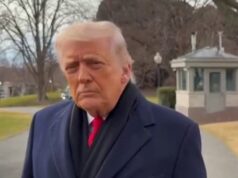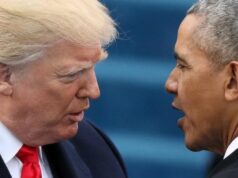We warned here on TGP that the new Vatican Head of doctrine was a train wreck waiting to happen – well, it did.
Most non-Catholics don’t have any idea about what the ‘Dicastery for the Doctrine of the Faith’ is – and this name also doesn’t ring a bell with many members of the Church.
But call it by its original name, and nearly everyone will know it: the Holy Inquisition.
It’s the oldest among the departments of the Roman Curia, founded to defend the Catholic Church from heresy – and is the body responsible for ‘promulgating and defending Catholic doctrine’.
Its seat is the Palace of the Holy Office in Rome.
In 1965, it became called as the Congregation for the Doctrine of the Faith before receiving its present name – but it’s still informally known as the ‘Holy Office’.
It’s a very prestigious office, former Pope Benedict XVI – then called Archbishop Joseph Ratzinger – headed it with great success during John Paul II’s papacy.
It’s the Pope’s ‘Doctrinal Watchdog’ responsible for ‘guaranteeing that Vatican documents and Catholic theological publications meet minimum standards of orthodoxy’.
Pope Francis, being the pontiff hell-bent in ‘reforming’ (many say destroying) Catholic Doctrine, chose the ‘perfect’ man for the ‘task’.
Back in July, I published here in TGP an article called Pope Francis Places Controversial Argentinean Bishop as New Head of Discipline and Doctrine – Monsignor Fernández Wrote Book About the ‘Art of Kissing’, and Is Accused of Covering up Sexual Abuse Allegations in His Archdiocese
Below is an excerpt of it, to remind us:
“Globalist Pope Francis continues unabated in his struggle to remake the church according to his very peculiar view. Now the Argentinean pontiff has selected a controversial countrymen for one of the most powerful posts in the Ecclesiastic Hierarchy, in a move that generated protest in sectors both inside and outside the Church.
Associated Press reported:
“Pope Francis on Saturday chose a bishop who is a trusted theological advisor from his native Argentina for one of the Vatican’s most powerful positions — head of the watchdog office that ensures doctrinal orthodoxy.
Francis named Monsignor Victor Manuel Fernández, the archbishop of La Plata, Argentina, as the prefect, or chief, of the Dicastery for the Doctrine of the Faith.”
“The Dicastery, or department, enforces orthodoxy of church teaching and disciplines theologians deemed to have strayed from Catholic doctrine in their lectures or publications. But it has taken on considerably more importance to rank-and-file faithful as the stain of pedophile priests spread across the globe in recent decades. Among the department’s duties are evaluating and processing sex abuse allegations against clergy.”
ABC News reported:
“A U.S.-based group that tracks how the Catholic hierarchy deals with allegations of sexual abuse by clergy says Pope Francis made a ‘troubling’ choice in appointing an Argentine prelate to a powerful Vatican office that handles such cases.”
In 2019, Fernández ‘refused to believe’ victims who accused a priest in the La Plata archdiocese of sexually abusing boys, and disregarded the accusations.
That is disturbing, for a bishop set to have the responsibility of judging and punishing priests who abuse children.”
“Francis ‘made a baffling and troubling choice’, the group said in statement emailed late Saturday in the U.S., citing how Fernández handled the case.
‘In his response to allegations, he stoutly supported the accused priest and refused to believe the victims’, BishopAccountability.org said. Fernández ‘should have been investigated, not promoted to one of the highest posts in the global church’.”
And the criticism also comes from inside the church, as many conservative catholic have reservations about his theological work and his adherence to the orthodoxy he is to defend.
Catholic news site The Pillar reported:
“Fernández is the author of more than 300 theological works, including the 1995 ‘Heal me with your mouth. The art of kissing’, which was not included on the list of his publications released July 1 by the Vatican.
The Holy See press office said that the archbishop’s writings were marked by ‘a significant biblical basis and a constant effort to create a dialogue between theology and culture, evangelizing mission, spirituality, and social issues’.”
That a book like that is inappropriate for a man in his position is half-admitted by Fernández himself in the first paragraph of his book: “I want to clarify that this book was not written so much based on my own experience, but based on the lives of people who kiss. In these pages I want to synthesize the popular feeling, what people feel when they think of a kiss, what mortals experience when they kiss.”
So, knowing the man, it’s easy to understand why Fiducia Suplicans is such a massive flop. After all, who wants the author of ‘The Art of Kissing’ to be reforming millenary doctrine?
Christopher R. Altieri wrote in The Catholic World Report:
“Fiducia supplicans is crowded with caveats and brimming with qualifications, many very carefully drawn, over 5,000 words. It is evident that the declaration’s author and his commissioning principal both knew it would make waves. But it is unlikely either Fernandez or Pope Francis expected the tsunami of reaction that came in short order.”
Some dioceses in liberal-decadent western Europe made a show of enthusiastically embracing the business.
“From other jurisdictions—many of them geographically located in the global south—the reception ranged from frigid to actively hostile, with several national bishops’ conferences flatly refusing to implement the declaration at all.
The cardinal-president of the Symposium of Episcopal Conference of Africa and Madagascar (SECAM), Fridolin Ambongo, issued a call mid-week for talks among African bishops with a view to preparing a unified “continental” response.”
Ambongo, it bears saying, is a member of Pope Francis’s C9 “small council” of cardinal advisors.
Fernández told The Pillar that there is no change in the doctrine on marriage — male-female, exclusive, indissoluble, naturally open to the generation of new life.
“It’s nice to have the DDF prefect on record saying there isn’t any change in said points of doctrine, but the fact he had to say it itself makes it difficult to credit the idea that there is much clarity in either Fiducia’s particular propositions or the theological articulation it gives for them. Now, the practical realities facing both the DDF prefect and his principal are indeed daunting.
[…] Pope Francis has put himself in an impossible situation. Popes do that, from time to time. It usually isn’t that big a deal. In the age of instant communications and 24-hour news cycles, however, a big enough crisis could put the implosion of a pontificate on display for the entire world, in real time.”
Read more:
Pope Francis Faces Growing Worldwide Pushback Against His ‘Same-Sex Blessing’ Doctrine











